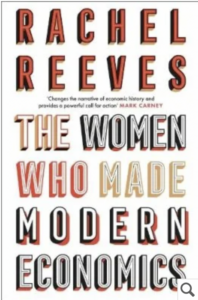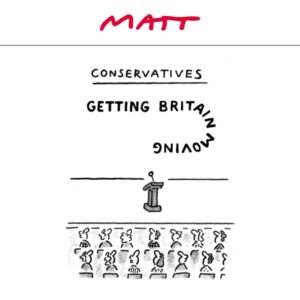Betjeman Towers

Every time I pass through St Pancras station I think of him.
Quote of the Day
”War is God’s way of teaching Americans geography.”
- Ambrose Bierce
Musical alternative to the morning’s radio news
Fleetwood Mac | The Chain
Long Read of the Day
Short-Form War
Extraordinary blog post by Scott Galloway which throws light on the widening gap between how Western political establishments view the Israel/Gaza conflict and how young people see it.
This is his starting point.

This is not unique to the Hamas attack. The older you are, the more likely you are to be pro-Israel: In March 2022, 69% of Americans over 65 had a favorable view of Israel, while just 41% of those under 29 did. Worries about increasing antisemitism in the U.S. are similarly correlated: 85% of seniors say it’s growing; 52% of Gen Zers say it’s not.
Young people are resistant to the views of their elders. And that’s a good thing. As kids enter adolescence, they develop a healthy gag reflex triggered by anything associated with their parents. This helps them develop their own opinions and beliefs about the world, and it’s also good for the parents, because by the time kids are 18, they can be such assholes that everyone’s ready for them to leave the house.
But that doesn’t explain students at my employer (NYU) holding up protest signs reading “keep the world clean” with images of the Star of David in trash cans. I’d like to think this is a fringe view, but when 51% of their cohort believe the murder of 1,200 people is justified, something more serious is happening…
It is. Read on to see his theory. (Spoiler alert: it has something to do with China.)
The ‘Other’ Mendelssohn
On Wednesday evening last we went to see the premiere of Sheila Hayman’s terrific film about her great-great-great grandmother, Fanny Mendelssohn Hensel, a spectacularly gifted composer who lived most of her short life in the shadow of her brother Felix. He was the Lang Lang of his day, feted everywhere he went, while his sister was obliged by social convention and the misogyny of the Victorian era to keep her talent to herself. Among the ironies of her story is the fact that when Felix was invited to perform at Buckingham Palace, the song that Victoria chose to sing from a collection of his work had actually been written by Fanny!
Fanny: The Other Mendelssohn is an entrancing film which interweaves Fanny’s life with a fascinating piece of academic detective work — the search for the manuscript of Fanny’s Easter Sonata, which had been torn in its entirety from a collection of her work lodged in a Berlin museum. The film tracks the music scholar Angela Mace as she follows the tangled path of the manuscript through eccentric dealers and auction houses before it finally wound up in the collection of a wealthy American collector (who has since donated it to the J.P. Morgan library in New York). And, as an emotionally satisfying coup de grace, the film concludes with the premiere performance of the Sonata by Isata Kanneh-Mason before an audience in Birmingham.
Full disclosure: Sheila is a friend and a member of the Advisory Board of our Research Centre, but you don’t have to take my word that this is a remarkable movie by an exceedingly talented director (see here for her other work). She’s now embarked on a film about AI, so stay tuned.
And here’s the trailer.
My commonplace booklet
Grok Cometh
Grok is an AI modeled after the Hitchhiker’s Guide to the Galaxy, so intended to answer almost anything and, far harder, even suggest what questions to ask!
Grok is designed to answer questions with a bit of wit and has a rebellious streak, so please don’t use it if you hate humor!
A unique and fundamental advantage of Grok is that it has real-time knowledge of the world via the platform. It will also answer spicy questions that are rejected by most other AI systems.
Grok is still a very early beta product – the best we could do with 2 months of training – so expect it to improve rapidly with each passing week with your help.
Note the idea of having “real-time knowledge of the world, via the X platform”.
And guess whose brainchild it is? Hint: think Rishi Sunak’s new Best Friend.
This Blog is also available as an email three days a week. If you think that might suit you better, why not subscribe? One email on Mondays, Wednesdays and Fridays delivered to your inbox at 6am UK time. It’s free, and you can always unsubscribe if you conclude your inbox is full enough already!














